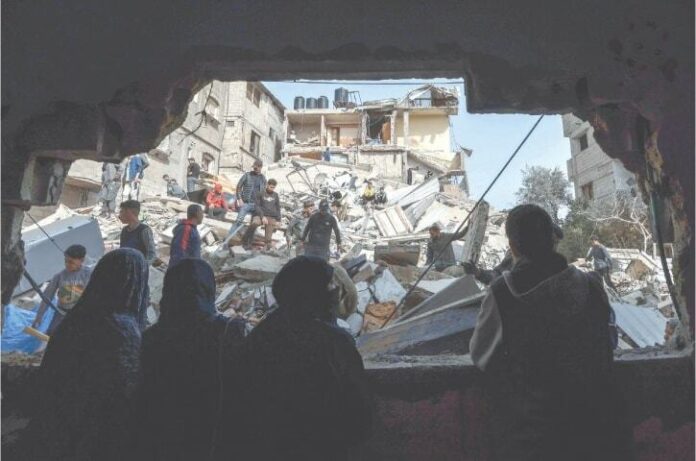Amidst the ongoing conflict in the Gaza Strip, the situation remains dire as Israel’s recent airstrikes have claimed the lives of many innocent civilians. The bombing of homes in Rafah has sparked fears of a potential ground assault, intensifying the already devastating impact on the Palestinian population. Tragically, one airstrike resulted in the loss of 11 lives from a single family, highlighting the profound human cost of the conflict.
The health ministry reported a staggering death toll of at least 32,490 people in the territory since the conflict began over five months ago, with 76 deaths occurring in the past 24 hours alone. Additionally, 74,889 individuals have been wounded, underscoring the widespread suffering and trauma experienced by the people of Gaza.
The escalation of violence has also raised concerns about the safety of medical facilities, with fighting near hospitals in Gaza City and Khan Yunis threatening the ability to provide essential healthcare to those in need. The Palestinian Red Crescent has issued warnings about the dire situation faced by thousands trapped in these areas, emphasizing the urgent need for humanitarian assistance.
Furthermore, the disdain for a UN Security Council ceasefire resolution has been palpable, with residents expressing frustration and fear over the continued airstrikes and the looming threat of a ground assault. The international community’s efforts to broker a truce and secure the release of prisoners have so far yielded no results, leaving many to question the efficacy of diplomatic interventions in ending the conflict.
In a related development, the US and UK have imposed sanctions on individuals and companies associated with the media channel Gaza Now, alleging ties to Hamas fundraising activities. This move reflects the broader efforts to disrupt financial support for groups involved in the conflict, underscoring the complex web of political and economic dynamics at play in the region.


